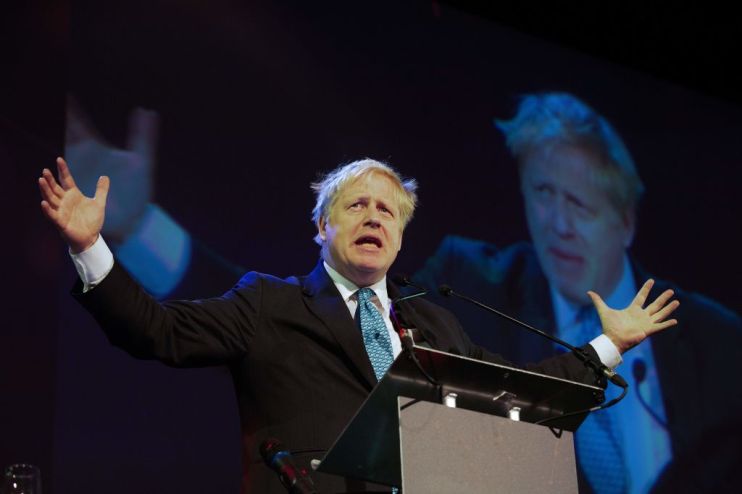Boris built a digital London — now he must turbocharge digital Britain

With the economy slowly beginning to reopen as lockdown measures are eased, all eyes this week will be on the government’s plan for reigniting confidence and growth.
The Prime Minister is expected to refocus on the levelling-up agenda, skirting any suggestion of a return to austerity and concentrating instead on public services, the environment, and investment in infrastructure.
Boris Johnson has been here before. Just four months after we came into City Hall in 2008, we were faced with the global banking crisis. The sight of Lehman Brothers employees filing out of their Docklands office was a shock felt deeply across a city known as the world’s financial centre.
We had to plan and react quickly to make sure London came out of that crisis stronger. And over the following years we transformed the city into a global technology powerhouse: building the Tech City ecosystem, seeding a startup culture based around “Silicon Roundabout”, and attracting innovative people and technology businesses to London.
Over a decade on, that transformation has helped create half a million jobs.
Now, the Prime Minister has the opportunity to transform not just a city but an entire nation. He must be as quick and decisive as he was in 2008: making the right decisions and investment to navigate a global recession and emerge stronger on the other side as a turbocharged digital Britain.
Change was already underway across some sectors before the pandemic, and lockdown has seen the entire economy embrace all-encompassing digital services almost overnight. Digital secretary Oliver Dowden’s plan for a new “digital strategy” announced last week is another welcome step, particularly in its intention to address gaps in skills and connectivity.
What Britain now needs is a digital culture to capitalise on this momentum. That means investing in innovation; attracting talent and global businesses to the UK; creating a digitally skilled workforce; and getting the right teams, partners and deal makers across industry and government to embed a new approach and make sure it sticks and delivers.
First, the government’s business department must act to ensure that geography is never a barrier to entrepreneurship, for example by establishing digital regional clusters to help businesses innovate and test ideas, and a digital business link to support adoption of new technologies boosted by full fibre.
Second, with many companies and workers having migrated to remote working during lockdown, the Treasury must support and encourage this continued transition. A digital adoption fund could help even small businesses adopt productivity-enhancing digital services.
Finally, we must not lose the spirit of partnership and collaboration that has defined businesses of all sectors and sizes during the pandemic — for example in the widespread efforts to boost production of both ventilators and personal protective equipment. Future economic measures must accelerate such partnerships.
The Cabinet Office’s outsourcing playbook, developed with industry over the last two years, has helped remove barriers and change culture enabling businesses of all sizes to work for the government, and Whitehall has unquestionably been embracing the use of technology. Now it must also embrace a renewed entrepreneurial spirit which can harness the unique potential of British tech.
The government cannot design, manage and deliver this transformation of Britain within current structures and procurement models, however. It must let technology businesses big and small do what they do best, and take the lead in technology development.
We are at a critical juncture, with the opportunity to shape our society and economy for decades to come. The course for recovery must not only restore economic health, but consolidate the positive change brought about by rapid digital adoption.
The reward will be a digital Britain, ready to keep pace with a digital society and a transformed, stronger and more competitive economy.
Main image credit: Getty